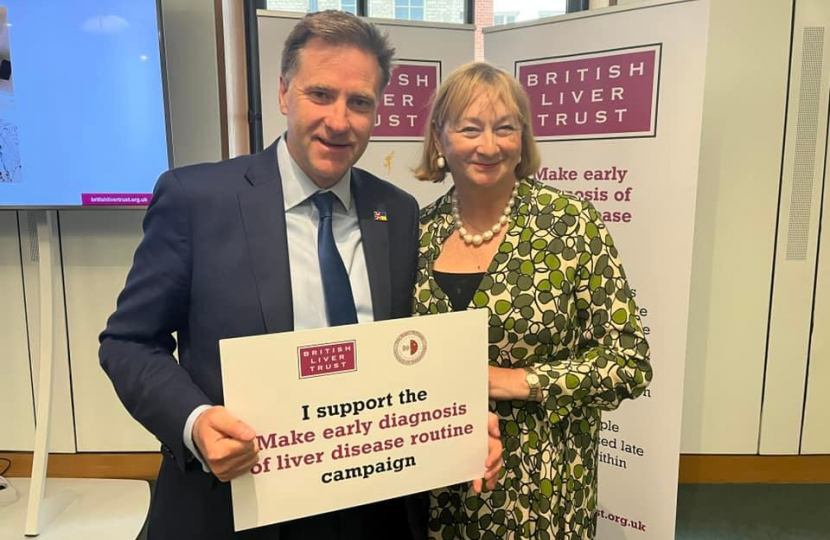
On Tuesday 16th April, Steve Brine, attended the Parliamentary launch of the Make Early Diagnosis of Liver Disease Routine campaign, which aims to significantly improve early detection of liver disease in the UK and ultimately save lives.
The campaign is a result of research carried out by the British Liver Trust, which found that only 26% of health areas in the UK have an effective pathway in place for diagnosing people with a liver condition. This is in sharp contrast to other chronic conditions such as diabetes and heart disease, where patients receive standardised care.
Steve Brine MP said; "Today, the British Liver Trust were UK House of Commons to launch their campaign to Make Early Diagnosis of Liver Disease Routine. We need to achieve faster and earlier diagnosis across the country. Fantastic to catch up with their Chief Executive, Pamela Healy, is a good friend and I have worked with for a long time now."
The charity has mapped their pathway data on to the new Integrated Care System boundaries that have replaced Clinical Commissioning Groups in England and equivalent bodies in the devolved nations and found that three quarters of the UK do not have an effective pathway in place for the early detection of liver disease. This is in sharp contrast to other chronic conditions such as diabetes and heart disease, where patients receive standardised care.
Deaths due to liver disease have more than doubled in the last 20 years and the condition kills over 10,000 people every year.
Pamela Healy OBE, Chief Executive of the British Liver Trust, said: “Late diagnosis is costing the lives of thousands of men and women each year as three quarters of people with cirrhosis are diagnosed in hospital when it is too late for them to have life-saving treatment.
“We are launching our campaign in parliament to call for urgent action to stop this silent killer in its tracks, and are calling on the government to work with health services to ‘make early diagnosis of liver disease routine’ by ensuring that a systematic pathway is commissioned and implemented in these areas and that this is evaluated on a regular basis.”

